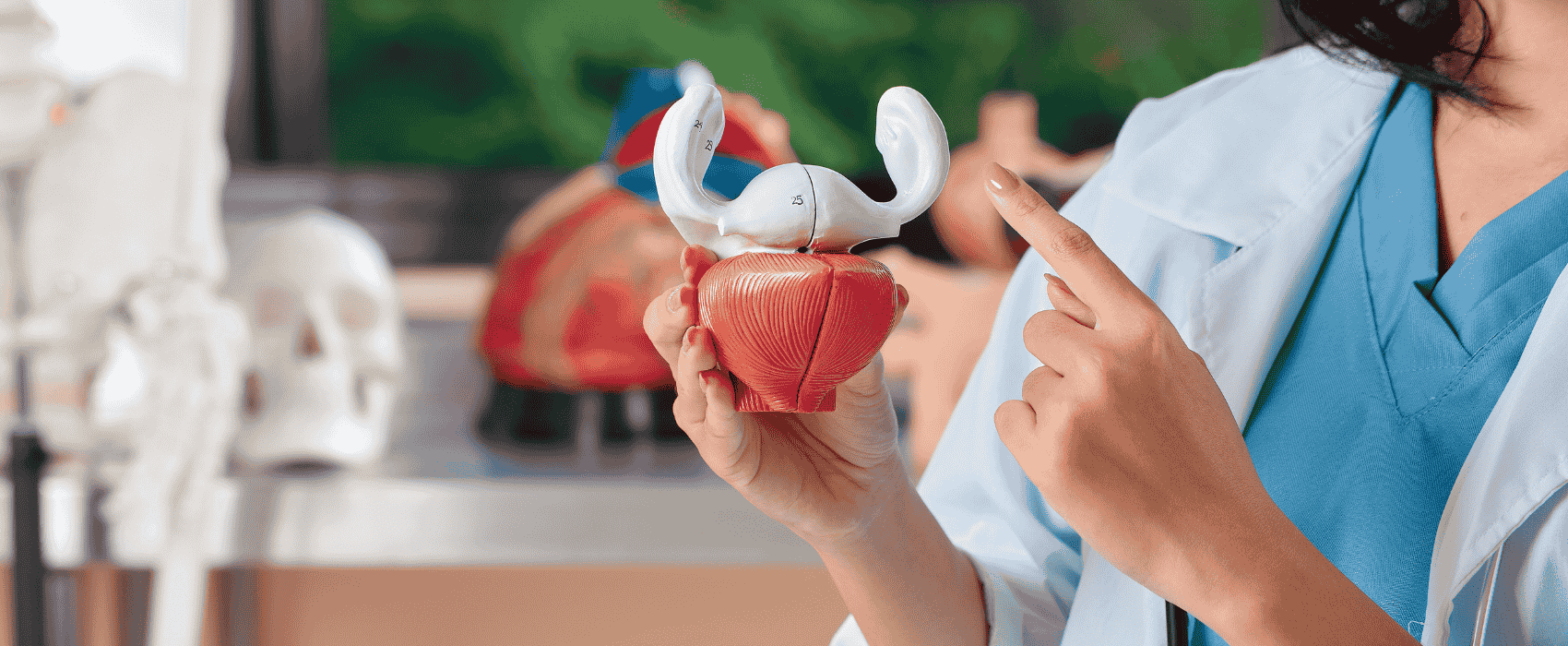
Taking control of your health in the new year will benefit your mind, body, and soul. While there are a few specific things you can do to target your urologic health, most of the healthiest habits have a positive effect on your entire body. Here are the top 10 ways to take control of your health in the new year.
1. Evaluate Your Current Health
You can’t gain control of your health if you don’t know where you stand. Many of us spend our days overlooking minor aches and pains or trying to hide symptoms with over-the-counter remedies. The first step to getting healthier is seeing your doctor and having a physical. To make sure that you’re getting a comprehensive overview of your health, see your primary care doctor, ophthalmologist, dermatologist, dentist, and urologist. Women should also schedule an exam with their gynecologist. If you haven’t been to the doctor in a while, the start of a new year is the best time to make sure that you have the knowledge to face the upcoming year and make impactful changes.
While evaluating your health can be scary, it’s essential in diagnosing any conditions or diseases before they progress and become increasingly serious. At the very least, schedule an appointment with your urologist, primary care doctor, and gynecologist.
2. Keep Your Doctor’s Appointments
Scheduling appointments is one thing; keeping them is another. This year make sure that you keep your doctor’s appointments and begin scheduling regular tests that are appropriate for your age group. There are hundreds of different conditions that, when caught early, can be treated easily and without complications. The longer you wait, the more serious things become. Make a resolution to keep your doctor’s appointments this year so you can work on living your healthiest year yet.
3. Eat More Nutrient-Dense Foods
What you eat has a direct impact on your overall health. Focus on eating whole, nutrient-dense food in the new year to get the most out of your lifestyle changes. Fruits and vegetables are packed with minerals, vitamins, antioxidants, and beneficial fiber that helps our bodies function at their best.
In addition to eating more nutrient-dense foods, it’s important that you reduce the amount of sugar you eat daily. Sugar is one of the most harmful things you can put I your body. It increases your risk of cancer, obesity, stroke, heart attack, and many urologic conditions. Sugars can be disguised on packaging, so make sure that you read the ingredient list.
4. Prioritize Mental Health and Rest
Throughout the pandemic, mental health has continued to be a concern showing a significant increase in symptoms such as anxiety, stress, insomnia etc. in U.S. adults compared to pre-pandemic surveys. Stress, anxiety, and a lack of sleep all wreak havoc on your health and immune system. Make it a habit in the new year to prioritize mental health and rest. Say no when you’re overwhelmed and schedule a strict time to unplug from work so you can create a healthier work-life balance. Try to get into bed at a reasonable time and aim for seven to nine hours of sleep each night.
5. Exercise and Be Active
Your body mass index (BMI) is one of the ways that doctors evaluate obesity. In the United States, nearly 40% of adults are obese, but many don’t realize it. When you find out your BMI, you’ll be able to set realistic goals and work towards a healthier weight. This can serve as motivation to exercise more often and live an active lifestyle.
Exercise not only helps improve your physical condition, it’s good for the mind and helps alleviate stress. All three of these things can have an extraordinary impact on your overall health and reduce the frequency of common urologic conditions. While it’s recommended to get at least 150 minutes of moderate aerobic activity each week, you may need to adjust those numbers if you’re trying to lose more substantial amounts of weight.
It’s also important to take simple steps throughout each and every day to live a more active lifestyle. Many of us work in sedentary jobs and then come home only to sit on the couch and unwind. While exercising is essential, it won’t completely offset the impact of sitting all day. If you work at a desk, try to make your own DIY standing desk. If that’s not possible, make it a point to get up and move for at least a few minutes every hour. Take a lap around the office, or the house, or get up and do a few simple exercises. Doing so will help improve your circulation and counterbalance the effects of prolonged sitting. Take the stairs instead of the elevator, park at the furthest end of the parking lot, or take a walk after every meal. Small actions add up.
6. Undergo the Appropriate Screenings or Tests
Depending on your age and gender, there are certain screening and routine health checks that are essential in early detection and prevention of health issues. Make sure that you talk to your doctor about any tests you’ll need and, as we said earlier, always keep the appointments. Getting screened could be the difference between an easily treatable condition and the development of cancer.
If you’re sexually active or have more than one partner, make sure that you’re undergoing regular sexual health tests—especially if you notice any symptoms of an STI. Women should have an annual physical with their gynecologist to check for any abnormalities, HPV, or early signs of cervical cancer. While sexual health varies from person to person, it’s still an important part of your overall health. Unchecked STIs can lead to fertility issues, serious health complications, and more. The same should be said about problems with sexual function. If you’re suffering from erectile dysfunction or impotence, there are treatment options. Don’t ignore sexual problems—schedule an appointment with your urologist today.
Women should also regularly undergo mammograms as they age. While self-examinations are important, after you turn 50 it is recommended to get an x-ray to examine any changes in breast tissue.
Men should make sure that they’re getting yearly prostate exams after the age of 50 or if you notice any problems or symptoms of benign prostatic hyperplasia (BPH). Prostate problems affect nearly 30 million men in the United States, but prostate cancer is one of the most treatable cancers when caught early. By undergoing regular prostate screenings, you’ll make sure that you catch any issues before they become dangerous.
Finally, if you notice any pain at all, see your doctor or urologist. Pain is a sign that something is wrong and should be addressed to avoid further problems. Millions of Americans suffer from urologic problems that are easily treatable when properly diagnosed.
7. Kick Bad Habits
Whether you smoke, overindulge in alcohol, or eat way too much processed sugar, it’s time to kick your bad habits for good. There’s never a better time to overcome your vices than during the new year, so be honest with yourself and set some resolutions. While many people benefit from going cold turkey, others struggle to eliminate everything at once. If you need help quitting smoking or reducing your alcohol intake, talk to your doctor today. There are hundreds of resources available to you to help you take back control of your health and quit once and for all.
8. Stay Hydrated
Staying hydrated has become synonymous with being healthy. Aim to drink at least eight, 8-oz glasses of water every day and avoid hydrating with sugary sports drinks, soda, or coffee. Water can help flush out infections and reduce the likelihood of kidney stones, along with many other diseases. Water is great for both bladder health and overall health.
9. Practice Healthy Bathroom Habits
It’s completely normal to use the bathroom anywhere from four to eight times a day and up to twice at night. When you have to go, go. Avoid holding in your urine as it may lead to problems like infections over time. Women should always wipe from front to back and make sure you see your urologist if you notice any problems or signs of a urologic condition. If you notice that certain foods irritate your bladder, avoid them. Some foods can worsen urinary incontinence so it’s important to listen to your body to avoid worsening problems.
10. Do Your Kegels
While kegels are often associated with women, men can benefit from doing them as well. Kegels help to strengthen the pelvic floor muscles, which support your bladder. Practice doing your kegels regularly to improve your overall urologic health and avoid symptoms of incontinence or urgency.
While everyone would love to adopt all of these habits effortlessly, it takes work. Don’t get discouraged if you slip off track. Instead, make a bounce-back plan so that you don’t let one mistake turn into months of reverting back to unhealthy habits. For more information on improving your urologic health, or for support of common urologic conditions, contact the professionals at Byram Healthcare today.




